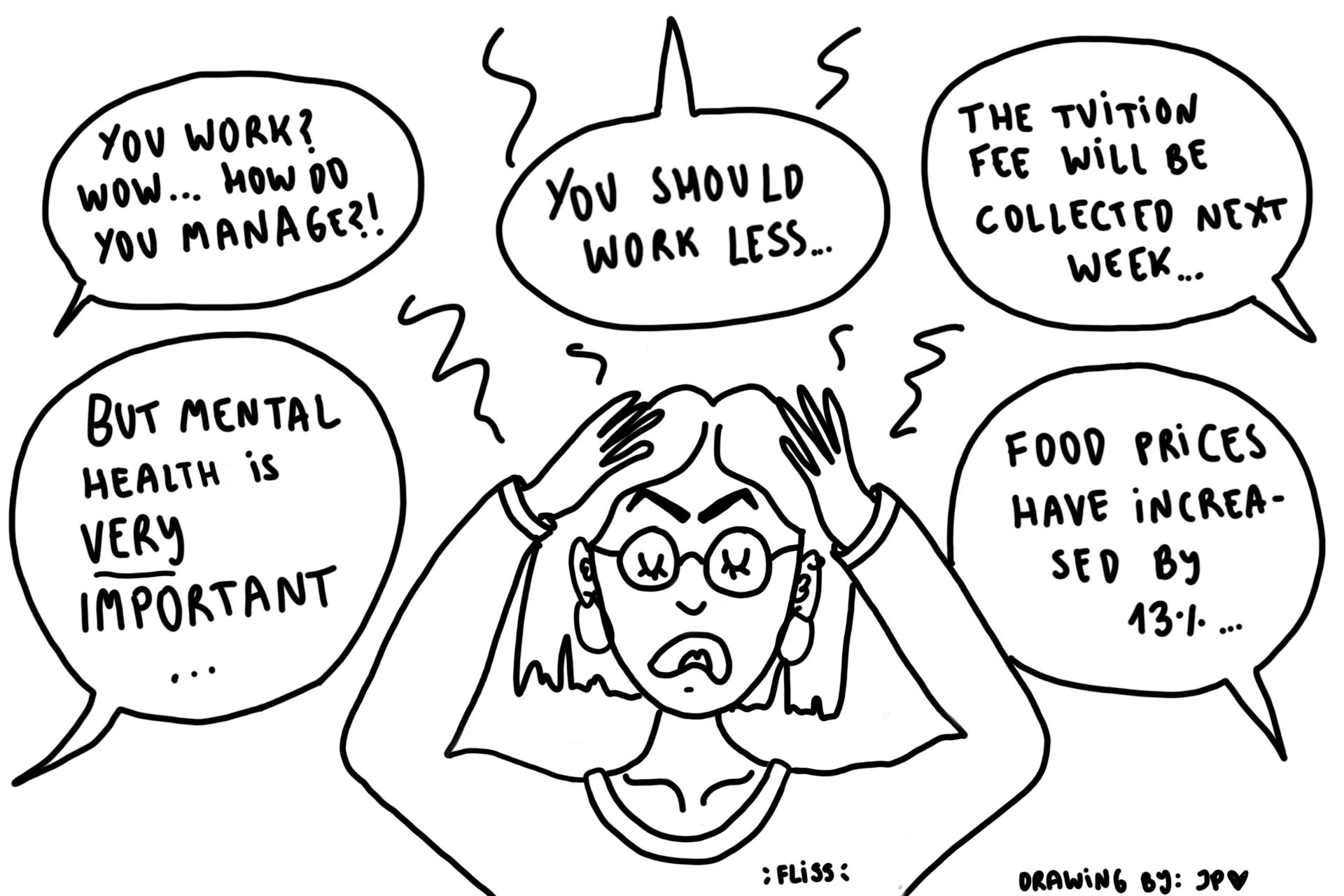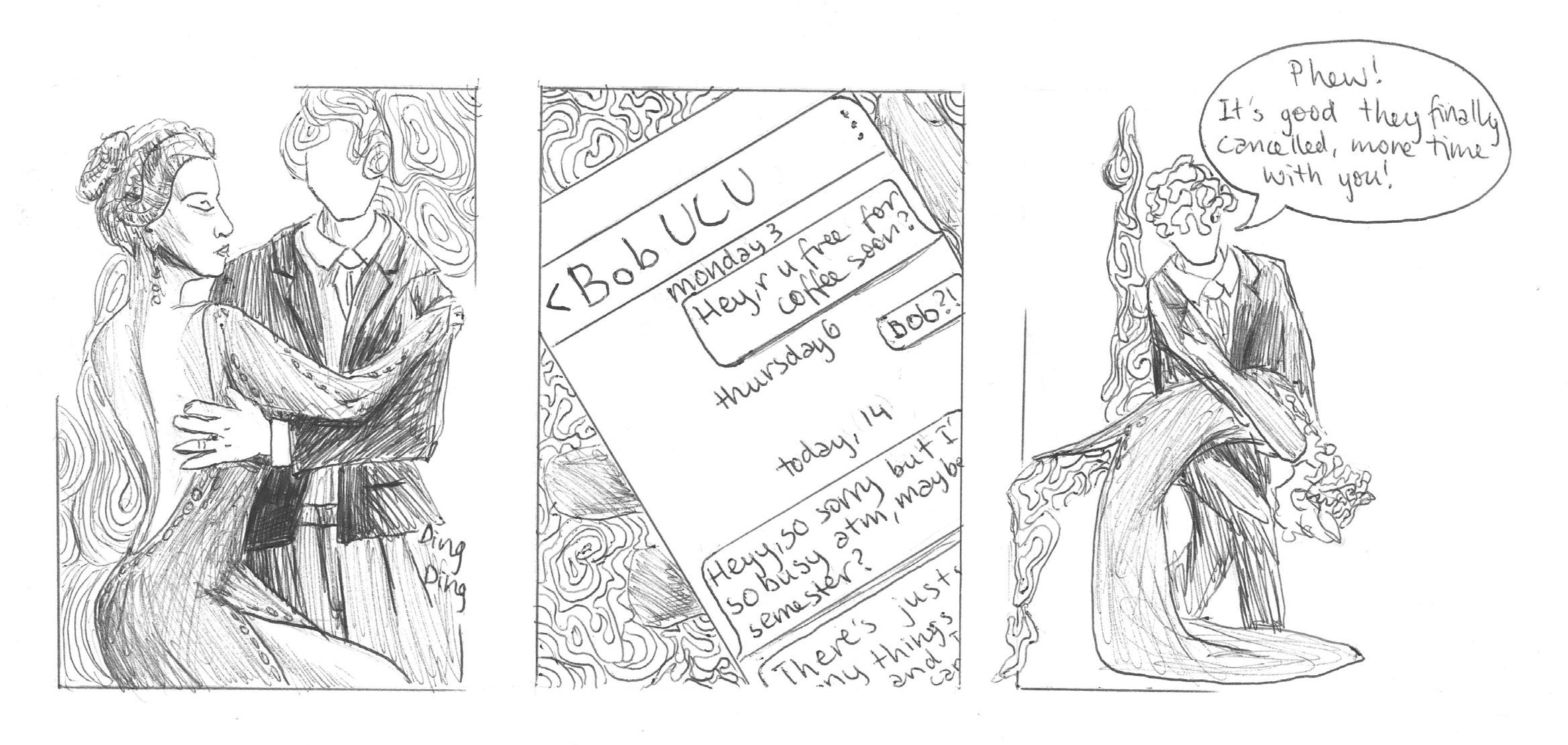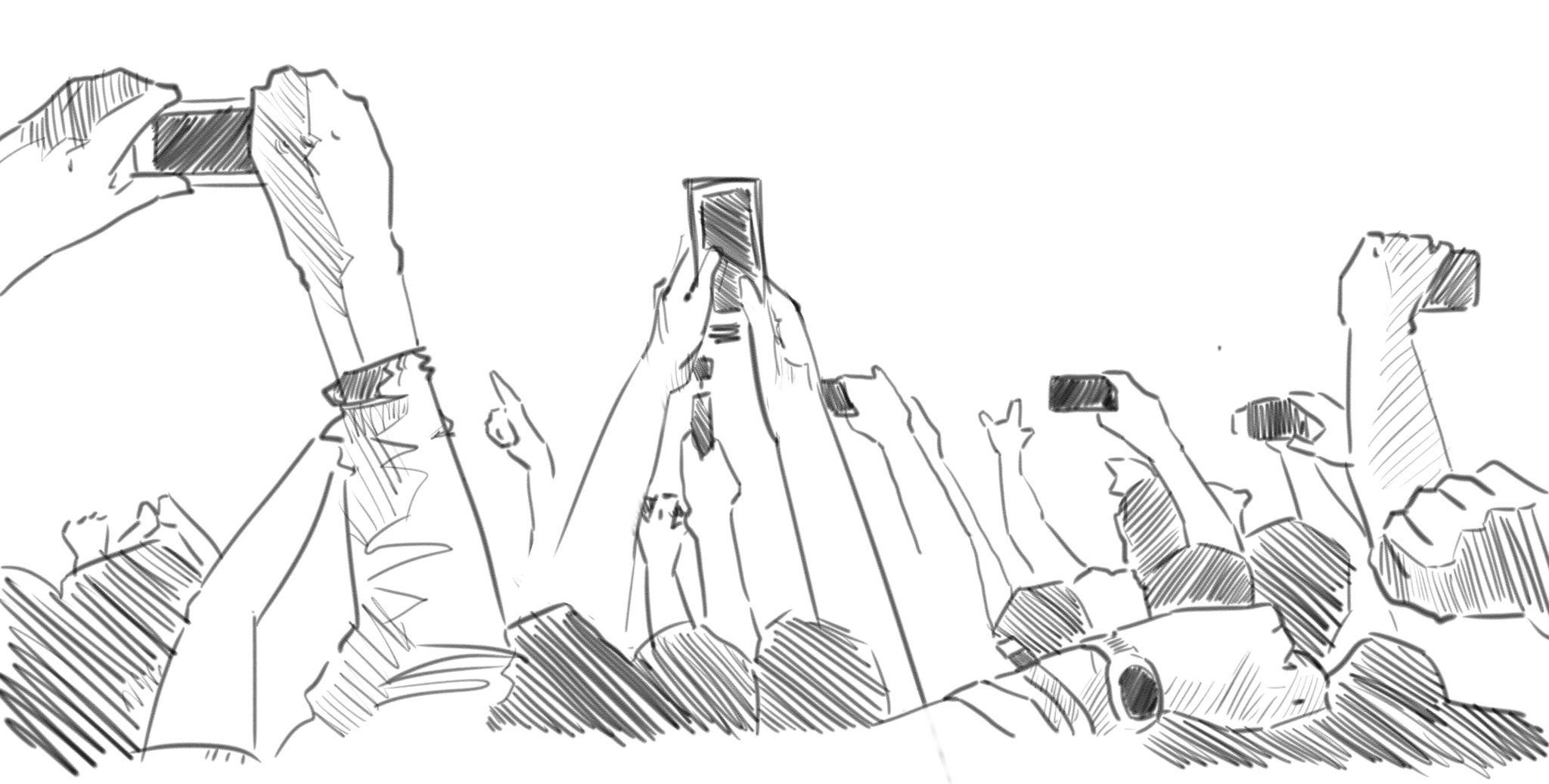
3 minute read
My Neurodivergence and I
from Winter 2022
by Ren Carmody-Hendriks
Disclaimer: my experience with ADHD cannot be generalised to every neurodivergent individual.
Advertisement
Neurodivergence – a term that refers to variations in the human brain and cognition regarding sociability, learning, attention, mood, and other mental functions. It encompasses a variety of diagnoses - Autism Spectrum Disorder, Attention Deficit (Hyperactive) Disorder, dyslexia, dyscalculia, Tourette's, social anxiety, and others.
We all know at least one person who is neurodivergent, whether you are aware of it or not. Some are very comfortable with sharing their diagnosis, others not as much. I’ve been diagnosed with ADHD, specifically the inattentive kind. The conclusion was finalised in the Summer of 2020 when I was 19, just two months before coming to UCU.
The diagnosis did not change my life. In actuality, it was just a confirmation of the beliefs I have had ever since I was a child – that something was “wrong”, something that felt “off” about myself. The statement “I don’t know” had a chokehold on me then, it was a perpetual lump in my throat, ready to pop out when the unexplainable was asked to be comprehensively explained. It triggered a frustration that unfortunately did not disappear with the diagnosis, rather, one frustration was replaced by another.
When confronted with the facts of life whilst donning a pair of ADHD-tinted glasses, you realise there are small injustices ingrained in many aspects of life. You learn how institutions and social situations have always been slightly against you, and how your struggles are not unfounded. On a personal level, every day offers a new way to confront you with how your ADHD influ ences your interactions, your work effort, your ability to love and be passionate, and your changeability, to name a few.
I don’t want to be defined by my ADHD, but how am I meant to be able to separate myself from this diagnosis when everything I do is tinged with its colour? There is a shame that always seems to sit on my tongue, the tongue that tells everyone my diagnosis. The shame transforms a simple statement into a confession that reeks of atypical embarrassment and is yet framed as a joke – the need to make ADHD laughable, suggestive of the crippling lack of self-esteem that comes with it. feel like you are letting others and yourself down, very likely due to your habit of overcompensating to make up for your shortcomings. Frustration follows closely behind these two, because it seems that with every single trouble and struggle, there is a little practical solution paired with it, a solution that forever feels out of reach, despite being so close. It feels ridiculous, watching everyone do a task with ease while you in that moment feel incapable.
It calls for an internal mindset change. One that is softer, more compassionate –one that understands how a neurodivergent way of seeing the world looks different. One that allows you to recognise and reinforce your specific boundaries and needs that keep you from dysfunctional paralysis.
Without the official psychiatric terms, how else am I meant to explain my behaviours? How else am I meant to explain, for instance, that there are days when my tolerance for stress waivers? That sometimes, the slightest sound, sight, touch, or pattern disturbance causes a meltdown. Without these terms that have helped the majority understand and rationalise these atypical behaviours, how else am I meant to get institutions to bend to my will, rather than me bending to theirs?
In these short two years, some of my greatest joys have arisen due to my ADHD-influenced tendencies. I love following where my gut impulsivities can take me, and the imagination that comes with associative thinking, and the spark of passion I feel when I indulge in my interest of the week.
I adore the people I surround myself with – a true safe space brimming with compassion, especially when you stumble upon the coincidence that you are all neurodivergent in some way (a very common and heartwarming experience). Admittedly, it’s been a short two years, and there’s still a lifetime ahead of me, and it’s not always pretty, but I’m trying, and it’s been worth it every day.
Shame and guilt are certainly the keywords that seem to crop up in every discussion concerning ADHD. Shame, because it feels
Sure, it’s tiring, having to put up with the uninformed assumptions and unrealistic expectations from institutions and society – UCU’s mental health department can certainly be better (looking at you, Learning Agreement). It’s a learning process, for both us and those in our lives, but we do what we can within our capacities. We take what we can get, loving and nurturing the people and things in our lives that make us happy, and discarding what doesn’t – ultimately changing the harmful neurodivergent narratives that suffocate us.









